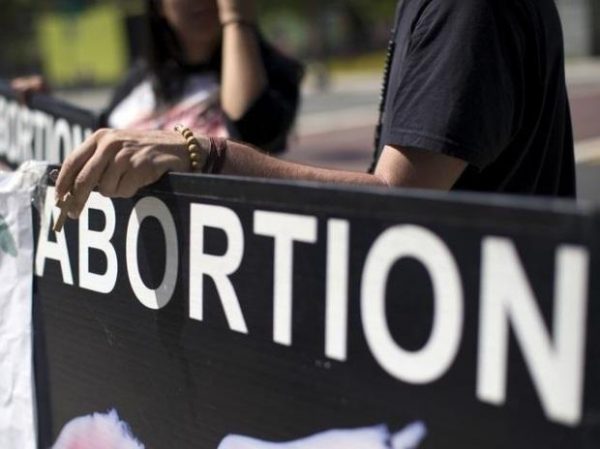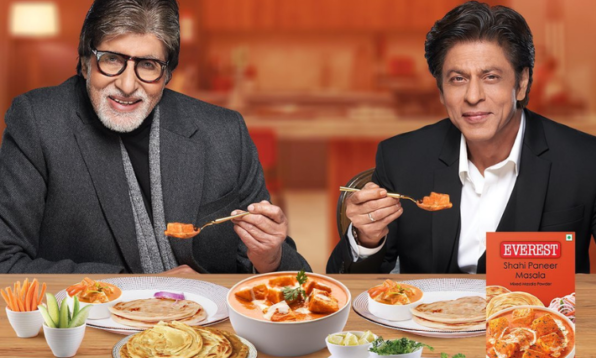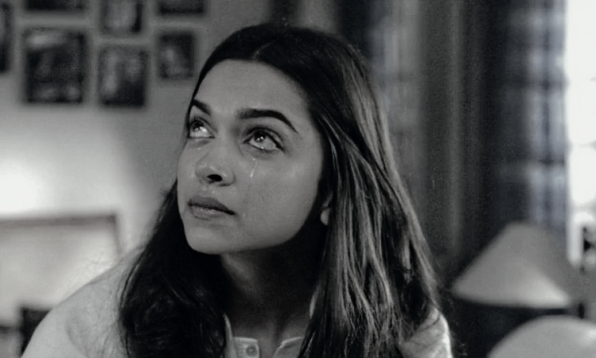Abortion. Sounds like a dirty word, right? Something that should be a cause of shame for women? An act that should be illegal in sanskaari India? Well, it isn’t. Abortion is, without a doubt, legal in India and every woman has the right to access safe abortions in the country. For some of you, this will sound shocking and you’re probably going to Google it at this point because it sounds like something I’ve made up. Go ahead. For those of you who are rejoicing about India’s progressive laws and freedom for women, stop. Just because abortion is legal in India doesn’t mean that all women get to exercise their right to terminate a pregnancy.
Here’s everything you should know, regardless of your gender, about abortion in India.
What The Law Says About Abortion In India
Under the Medical Termination of Pregnancy (MTP) Act 1971, a woman can get an abortion under various circumstances including choice. The Act was amended twice in the 21st century to ensure safe and accessible abortions for women. But the right to abortion is not unconditional in India.
According to the law, a pregnancy may be terminated by a registered medical practitioner if the length of the pregnancy does not exceed 12 weeks. Legally, in pregnancies not exceeding 12 weeks of gestation, a woman has to just ask for an abortion and she should get it regardless of the circumstances in which she got pregnant or the health of the foetus or the woman. If the length of the pregnancy exceeds 12 weeks, abortions are allowed if:
- The continuance of the pregnancy would involve a risk to the life of the pregnant woman or of grave injury to her physical or mental health; or
- There is a substantial risk that if the child were born, it would suffer from such physical or mental abnormalities to be seriously handicapped.
The law also states that if any pregnancy occurs as a result of the failure of contraception, the anguish caused by such unwanted pregnancy may be presumed to constitute a grave injury to the mental health of the pregnant woman.
Here are some of the key amendments made to the MTP Act in 2021:
- The upper gestation limit of 20 weeks was raised to 24 weeks for survivors of rape and incest and other vulnerable categories like those who are physically or mentally differently-abled, minors, and those whose marital status changed during the pregnancy (divorce or widowhood).
- The requirement of one medical practitioner, as opposed to two earlier, for the termination of a pregnancy up to 20 weeks of gestation. To terminate a pregnancy between 20-24 weeks, the opinion of two doctors is required.
- If a woman asks for abortion beyond 24 weeks of pregnancy, the approval of a medical board is required. This board needs to comprise a gynaecologist, a paediatrician, and a radiologist.
- The name and other particulars of a woman who has undergone a medical termination of pregnancy must be kept confidential except from a person authorised by law.
Under Indian law, women who want an abortion and meet the medical approvals for the procedure do not need a husband’s approval. This means that a woman’s marital status has no role to play if she wants an abortion.
The law also says that an abortion cannot be performed without the consent of the pregnant woman. Under Section 312 of the Indian Penal Code, anyone who causes a woman to miscarry will be jailed. This section also states that it is illegal for a woman to cause herself to miscarry. So, if you do want an abortion, you cannot buy over-the-counter medication for it. You will have to go through a medical practitioner trained in gynaecology and obstetrics but they cannot deny an abortion if you meet the legal requirements. And no, being married is not one of these requirements.

The Problems Around Abortion In India
Now, the law sounds great and completely in favour of women. And it is. But making a law has never been enough. We just don’t talk about it. Sex is such a taboo topic that something like abortion has never made it to mainstream discussions in India. We love to talk about it when we look good in comparison but not otherwise.
Similar to Roe v Wade, the last time abortion laws in India were so widely talked about was when Indian-origin dentist Savita Halappanavar lost her life due to Ireland’s restrictive abortion laws. For the uninitiated, 31-year-old Savita Halappanavar died in 2012 due to sepsis when the hospital in Galway, Ireland refused to perform an abortion on legal grounds. This case triggered outrage across the world, caused a change in Ireland’s laws, and brought abortion laws into focus. Even a decade ago, there were collective sighs of relief that this won’t happen to women in India. That is hardly true. Every day, women in India lose their lives due to a lack of appropriate pre and post-natal care.
There are a lot of problems that stand in the way of true reproductive freedom in India. Here are a few:
The inaccessibility to healthcare, especially for women
Access to safe and legal abortions is imperative and the most lacking in India. In a country where basic healthcare is still not available to every citizen and where women are often pushed to the background, safe abortions are a luxury. In areas where hospitals are a rarity, women who need the approval of a medical board to terminate need to travel to the nearest city to present their case. And if the board does not approve termination, they have to use more resources, both financial and otherwise, to take the issue to court. This costs both precious time and money for people who are already dealing with a medical emergency.
An alarming shortage of doctors
As mentioned earlier, a medical board, in cases of abortion after 24 weeks, needs to include a gynaecologist, paediatrician, and radiologist. India is facing an alarming shortage of gynaecologists which makes it clear how difficult it is for women in non-tier 1 cities to find such boards. According to Rural Health Statistics 2021, there is a 70 per cent shortage of OB-GYNs across India and a 78 per cent shortage of paediatricians.
Shame, secrecy, and judgement
A direct consequence of not talking about abortion is stigma. The judgement that women face from gynaecologists is great for meme content, but it has a serious effect on women who need an abortion, even in urban India. When you’re already going through a physically and mentally difficult period in your life, the last thing you need is a judgemental doctor. All of the secrecy around it also means that when a woman does get an abortion, most of the time, her family doesn’t know about it. At a time when she should be looked after and resting, she has to carry on with her life as if nothing happened.

Lack of sex education and autonomy of women
The crippling disregard for sex education in India is not new. Neither is the denial of autonomy to women. Yes, we have the law on our side but there are far too many women in India who are taught to be submissive to the men in their lives. So, if the husband doesn’t approve of it, many women shy away from abortions even if they don’t want to have a baby.
Women are still used as baby-making machines to produce a male heir. In these cases, the legal right to abortion is used as a weapon against women and they are often coerced into aborting female foetuses. While sex determination is illegal in India, we all know there are hundreds of unscrupulous medical providers who oblige when the family offers a cash reward to know the sex of the unborn child. And don’t think for a second that I’m talking about rural India only here.
Another way in which bodily autonomy is routinely taken away from women is when doctors don’t believe women who say they don’t want children. A woman can carry on and on about not wanting kids but her gynaecologist will almost always refuse to give her permanent or long-term solutions for birth control.
Misinformation on the legality of abortions in India
Ask the people around you and it is most likely that you will come across someone who thinks abortion is illegal in India. Because no one talks about it! Women’s reproductive rights are not electoral issues here, and in a country obsessed with politics, we tend to push everything else aside except the issues that our politicians want to use for votes.
There are so many other misconceptions around abortion in India like a married woman needing her husband’s approval in all cases of abortion, which is not true. A woman does not need anyone’s consent, other than her own and a medical practitioner’s approval in certain cases, to terminate a pregnancy.
It is also commonly believed that abortions harm the future fertility of a woman which is also unfounded. Having an abortion will have no effect on any future pregnancies. The only way in which an abortion might affect your fertility is if the procedure is botched and causes an infection in the uterus. The chance of this happening is very small if the abortion is performed by a certified medical practitioner in a hospital or designated clinic.
The limited language of the law
The Medical Termination of Pregnancy Act 1971 and its amendments do not mention transgender people and people with uteruses who do not identify as women. This lack of acknowledgement makes it even more difficult for trans people to access safe abortions.
So, instead of rejoicing in our relative freedom where abortions are concerned, let’s be more aware of where we still fall short and what needs to be done to make true reproductive freedom a reality in India.
Featured Image Source
Related: Everything You Need To Know About Freezing Your Eggs














